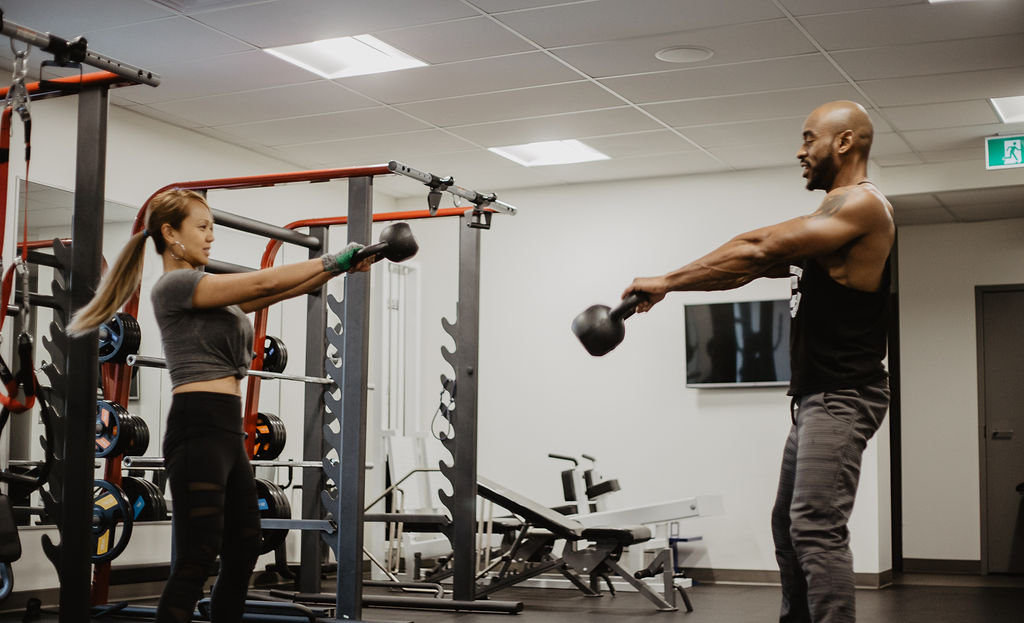Have you ever wondered how you can take those flaky halfhearted New Year’s resolutions and turn them into real sustainable lifestyle habits?
Especially during the holiday season, we aim to find new ways to improve ourselves.
“I’m going to eat better so I can lose weight”
“I’m going to strength train more so I can look more toned”
Yet most times, the outcome ends with numerous reasons and excuses why we couldn’t follow through.
See if you can relate to some:
“I have so many holiday parties coming up. Naturally, rich tasty foods will be served. How do I say no?”
“My kids wanted fast food. We had no other option between games and practices.”
Sees shortbread cookies in the staff lounge: “I’m going to exercise hard tomorrow so it’s okay to eat just one… maybe two.”
We find a reason we “screwed up” which is whythe percentage of us who make New Year’s Resolutions and fail is a whooping 95%! 95 percent of us will fail with our resolutions.[MAB1]
We quit and we say, “Forget it. I’m not going to do ’x’ anymore. It’s not working out.“
Giving up before even starting!
WANTING and DOING are two very different experiences.
We can blame it on poor excuses but there really are some areas we should shine the light on to help us through.

Reason #1: Our Environment.
We have this belief that we have complete control over our behavior and the reality is – we don’t. Our environment is a huge part to blame because where we are and who we are with is going to play a role in how we respond to stimuli like food and drinks.
We go to a holiday party, we see foods we want to try, the host offers, we say yes, we eat.
Kids are picked up from practice, they complain of being hungry, you have 15 minutes before the next game, see a fast food drive through, go into the fast food drive through, order food for kids … and for you because you are now hungry too.
Where we are and who we are with play a large role in how we behave.
Brian Wansink, author of “Mindless Eating: Why We Eat More Than We Think[MAB2] ” says that “Most of us don’t overeat because we are hungry. We over eat because of family and friends, packages and plates, names and numbers, labels and lights, colors and candles, shapes and smells, distractions and distances, cupboards and containers. The average person makes around 250 decisions about food every day.”
By eating more mindfully and being aware of our environment, we can train ourselves to eat better and create situations that will work for us rather than against us.
Reason #2: Our Goals
Yes, goals can also lead us down the wrong path. Especially if they are too vague. You want to create goals that are specific, meaningful, action oriented, rewarding and trackable.
Easier said than done and I work with many clients who set big dreamy goals but don’t have a plan in place. The challenge with goals is that we don’t spend the time to look at our calendar to make the goals real life.
Lose weight is a vague goal.
How much weight?
What will the weight loss feel like for you?
What actions will you take to lose the weight?
Have you set a deadline for reaching that goal weight?
These can be very hard answers to consider. It means that you must put into your calendar new habits, new routines, new thinking. What can we do to make the next year a better one?

Conscious Activity Planning
What gets measured gets managed.
Start first with understanding where you are now.
Before the new year begins, take the next next 3 – 7 days to track what you are doing with your time.
If your goals are fat/weight loss, monitor what you are eating and drinking, what times, your portions, how often and how long you are moving.
If your goals are muscle strength/weight maintenance, monitor what you are eating and drinking, portions, how often you are working out, what weight you are lifting.
Every goal requires different parameters to measure.
You have to be your own fitness motivator and if you know yourself and know this weill be a challenge, I strongly recommend that you access a fitness professional to kick start your habit change.
You’re always going to be told by other people the things that worked for them but use the experts that are around and ask them questions. Have them do an assessment and find out what’s going on with your life, who are you and what are you wanting out of your goals. A good professional will help identify where you need to start and give you a realistic plan to move forward.
You can utilize fitness apps like My Fitness Pal, Nike Training Club, Trainerize.
Once you can identify what it is you need to make change on, self-experiment.
Before the new year comes around, start trying out the new apps for a few days, change the way you workout and find new recipes you can try. This holiday season is a great time to experiment because you are exposed to new meals at parties; you can try new workouts on days off, you can talk to friends about what strategies have worked for them and try it out for yourself.
This is conscious activity planning, using your day to intentionally pay attention to what choices you are making in your day to make it a better one.
Lack of time is really a lack of priority setting.
Have a clear vision of your desired direction.
In a study of persuasion by B.J. Fogg, his biggest suggestion was to surround yourself with people who were always doing the desired behavior. Remember, these people don’t have to be physical. You can listen to podcasts from people who inspire you, you can go to the gym and surround yourself with other active people, you can opt to go to a healthy restaurant and see what others eat there. Seek support and use your environment to help you, not hinder your progress.
When you focus on making positive changes to your lifestyle, you take ownership of your actions and goals. Don’t let the year end, be your weak end. Finish the year off strong!
[mc4wp_form id=”537″]